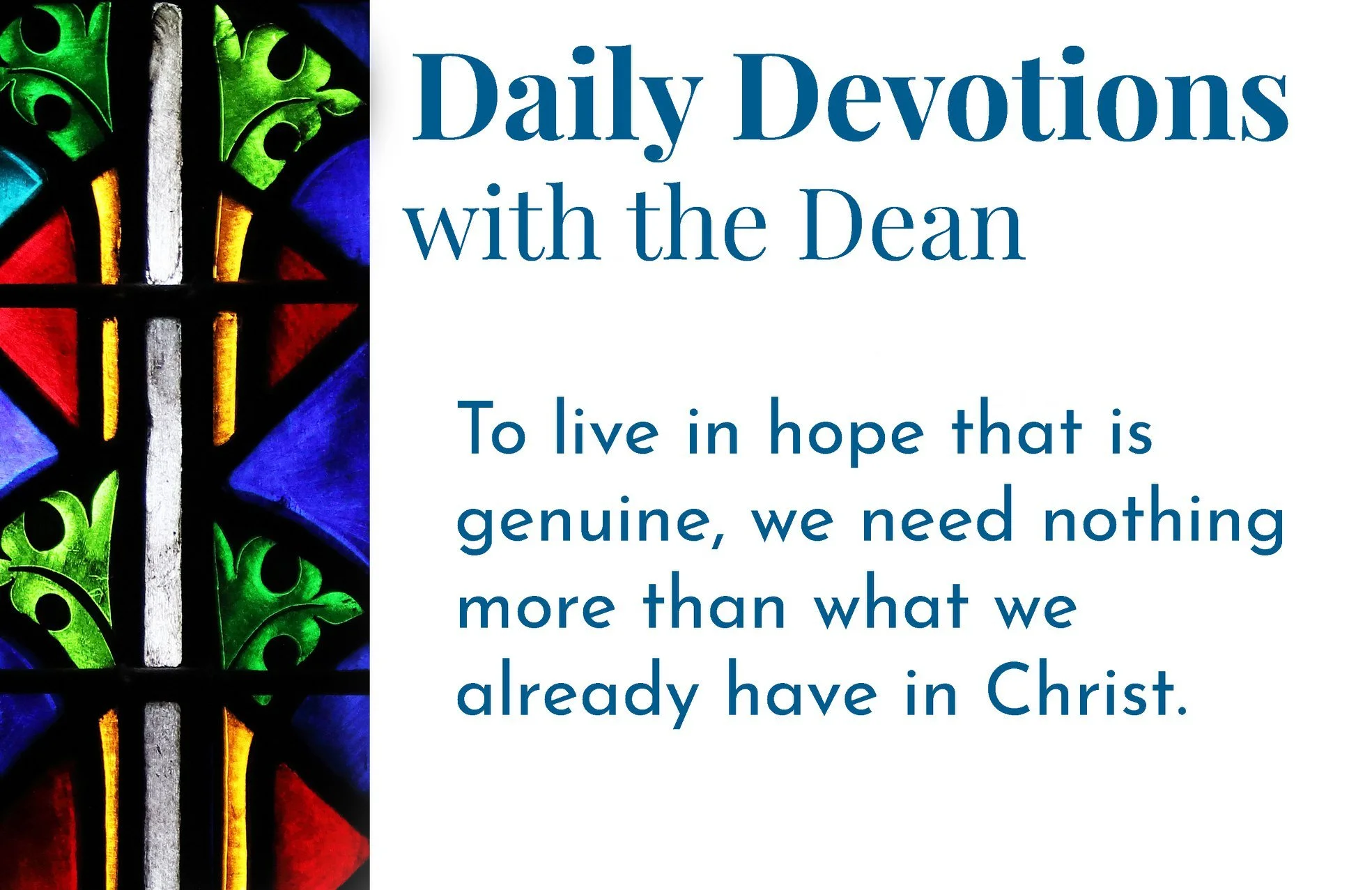Thursday • 5/4/2023 •
Week of 4 Easter
This morning’s Scriptures are: Psalm 50; Daniel 8:1–27; Colossians 2:8–23; Luke 6:39–49
This morning’s Canticles are: before the Psalm reading, Pascha Nostrum (“Christ Our Passover,” BCP, p. 83); following the OT reading, Canticle 8 (“The Song of Moses,” Exodus 15, BCP, p. 85); following the Epistle reading, Canticle 19 (“The Song of the Redeemed,” Revelation 15:3–4, BCP, p. 94)
Welcome to Daily Office Devotions, where every Monday through Friday we consider some aspect of that day’s Scripture readings, as given in the Book of Common Prayer. I’m Reggie Kidd. This is Thursday of the Fourth Week of Easter, and I’m grateful to be with you. “Alleluia! Christ is risen! The Lord is risen indeed! Alleluia!”
Daniel. In his old age, as he witnesses the demise of Israel’s Babylonian oppressors, and not long before their release by the Persians, Daniel also peers into the mixed future that lies ahead of God’s soon-to-be-liberated people. On the far side of their return to the Holy Land, they will experience severe troubles. God has not yet put a final end to evil. Nor will God have his people to be caught off guard. Thus, Daniel is given the visions described in chapters seven through twelve.
In chapter eight, Daniel sees a two-horned ram (the Medes and Persians) that surrenders to a single-horned goat from the west (Alexander the Great’s Greece). The single horn is broken, and out of it emerge four horns. From the four horns that follow the single horn (the four generals who divide Alexander’s empire after his death in 323 BC) will emerge “another horn, a little one, which grew exceedingly great.” This “little horn” will desecrate the sanctuary of God until it is “restored to its rightful state” (Daniel 8:9–14). There’s nearly universal agreement among interpreters that Daniel foresees here Antiochus IV Epiphanes (215–164 BC), who will desecrate the rebuilt Jerusalem temple. He will establish an altar to Zeus in it, and in a further degradation, sacrifice pigs upon that pagan altar. Daniel also foresees the Maccabean restoration of the temple (165 BC—see also Daniel 11:34; Zechariah 9:13–17; 1 Maccabees 4).
Many students of Daniel also see in Gabriel’s interpretation of this dream (Daniel 8:23–25) a prediction of the one Paul names the “man of lawlessness” and that John names “antichrist,” who will rise up in the very last days. Though this “king of bold countenance” will “destroy the powerful” and “make deceit prosper under his hand,” and though “in his own mind he shall be great,” nonetheless “he shall be broken, and not by human hands.”
Daniel’s message to us: Until Christ’s final crushing of Satan, until his definitive making new of all things, until the absolute end of sin and suffering and death, our realized hopes will always be mixed with disappointment. Demonic forces will resist God and fight against his people until God puts a final end to them in his own time. This will be when he is satisfied that the “full number of Jews” and the “full number of Gentiles” have come into his kingdom (Romans 11:12,25). That calculation is beyond the wisdom of any of us! Meanwhile, we live out our hope in the midst of struggle. As Paul says, “hope that is seen is not hope” (Romans 8:24).
Colossians. And, during this “meanwhile,” Paul waves us off from any shortcuts in the challenge of living with hope. Some of the Colossian Christians were taking their eyes off their true Champion, Jesus. They either venerated angelic beings, thinking erroneously to enhance their standing with God, or imposed on their bodies fleshly, self-made disciplines, again, to gain God’s favor (“Do not handle, Do not taste, Do not touch”—Colossians 2:18,21).
No, Paul says, we have all that we need in Christ. We’ve been “buried with him in baptism” so we are dead to any voices that would say we are too dirty to be pleasing to God (Colossians 2:12). The “record that stood against us” has been nailed to the cross along with Christ, so any heavenly power that could possibly stand against us has been “disarmed,”…“made a public example of,”…and “triumphed over” (Colossians 2:15). To live in hope that is genuine, we need nothing more than what we already have in Christ.
Luke. Jesus closes his Sermon on the Plain with the simple reminder that is it attentiveness to the Word of God (taking it in, mulling it over, praying through it, letting it mold our hearts and shape our actions) — it is this that gives true hope that our lives will stand and not crumble: “I will show you what someone is like who comes to me, hears my words, and acts on them. That one is like a man building a house, who dug deeply and laid the foundation on rock; when a flood arose, the river burst against that house but could not shake it, because it had been well built” (Luke 6:47–48).
May that be true of you and me!
Be blessed this day,
Reggie Kidd+



